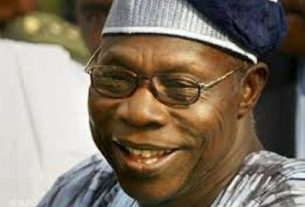– say 1 million people displaced, 150 million others living in poverty
Protesters trooped out on Thursday in Osogbo, Osun State capital on Thursday,
lamenting the deepening socioeconomic and security crises under the President Bola Tinubu administration.
The protest, was part of the nationwide democracy day protest in commemoration of the June 12, 1993 presidential election, won by the departed philanthropist, Chief Moshood Kashimawo Olawale Abiola, but annulled by military President Ibrahim Babangida
The protesters, under the aegis of the Take It Back (TIB) Movement and the Osun Civil Societies Coalition (OCSC),a lleged that over 10,000 Nigerians have been killed, and at least one million others displaced by terrorism, banditry, and other forms of insecurity in the past two years alone.
They further lamented that about 150 million citizens are now living in poverty.
Describing the federal government’s “Renewed Hope” agenda as a failed promise, the protesters said Nigerians are instead experiencing what they termed “renewed hopelessness.”
Youths at the protest held placards with inscriptions such as “End Bad Governance,” “Stop Foreign Loans,” “Repeal the Oppressive Cybercrime Act,” and “Reverse Petrol Price Hike.”
Addressing the crowd, TIB leader, Mr. Victor Lijofi condemned what he described as the greed of the ruling class, and its failure to prioritize the needs of the people.
“Nigerians are facing unbearable economic hardship, rampant insecurity, and widespread poverty,” Lijofi said. “Many now live below the poverty line and can’t afford even one square meal a day.”
He called on the citizens to join in the national demand for a truly democratic government that upholds accountability, credible elections, and human rights.
Lijofi also criticised the Osun State PDP-led administration for allegedly stalling key developmental initiatives, citing the delayed recruitment of teachers, and harassment of citizens by the Amotekun Corps.
“Instead of empowering local governance, this administration followed the path of APC states by shutting down local government secretariats,” he added.
Also, Comrade Waheed Lawal, Chairman of the OCSC, echoed TIB’s concerns while using the anniversary to reflect on the June 12, 1993, presidential election—widely regarded as Nigeria’s freest and fairest.
“This is a symbolic day that must never be forgotten,” Lawal said. “MKO Abiola should be fully recognized as president, and his entitlements paid to his family.”
Lawal called the government to compensate the whole people involve in democratic struggle, just as he commended the federal government for recognising June 12 as authentic Democracy Day.
He urged the federal government to stop clamping down on democratic freedoms and release all detained protesters.
Lawal further demanded the rehabilitation of Nigeria’s refineries and the reversal of anti-people economic policies.
Mr. Kola Ibrahim, Secretary of the Joint Action Front (JAF), emphasized the broader significance of June 12 as a symbol of true democratic possibility.
“In the last two years, this government has not met the aspirations of the people,” Ibrahim said. “We demand a reversal of fuel and tuition hikes, and that the power sector be returned to public ownership under democratic control.”
As both civil society groups and youth activists observed the day through advocacy and protest, their unified message was clear: the promise of democracy must translate into tangible improvements in the lives of ordinary Nigerians.





